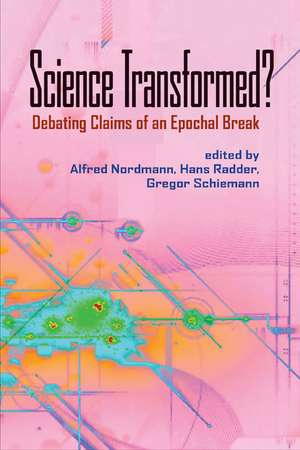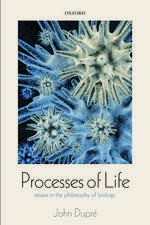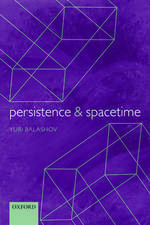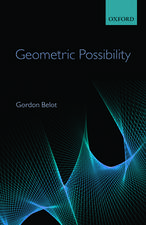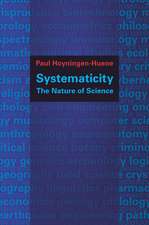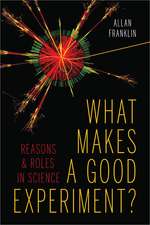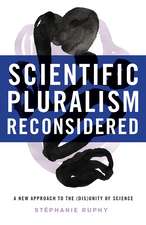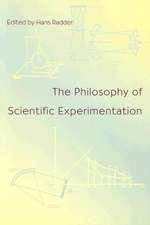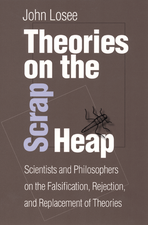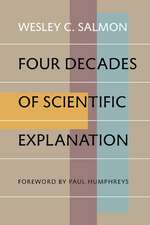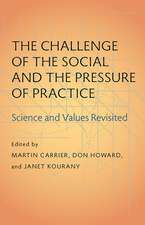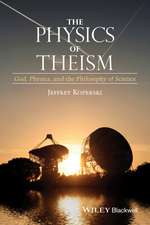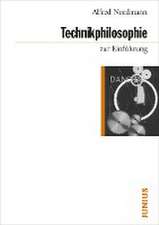Science Transformed?: Debating Claims of an Epochal Break
Editat de Alfred Nordmann, Hans Radder, Gregor Schiemannen Limba Engleză Paperback – 11 noi 2011
Advancements in computing, instrumentation, robotics, digital imaging, and simulation modeling have changed science into a technology-driven institution. Government, industry, and society increasingly exert their influence over science, raising questions of values and objectivity. These and other profound changes have led many to speculate that we are in the midst of an epochal break in scientific history.
This edited volume presents an in-depth examination of these issues from philosophical, historical, social, and cultural perspectives. It offers arguments both for and against the epochal break thesis in light of historical antecedents. Contributors discuss topics such as: science as a continuing epistemological enterprise; the decline of the individual scientist and the rise of communities; the intertwining of scientific and technological needs; links to prior practices and ways of thinking; the alleged divide between mode-1 and mode-2 research methods; the commodification of university science; and the shift from the scientific to a technological enterprise. Additionally, they examine the epochal break thesis using specific examples, including the transition from laboratory to real world experiments; the increased reliance on computer imaging; how analog and digital technologies condition behaviors that shape the object and beholder; the cultural significance of humanoid robots; the erosion of scientific quality in experimentation; and the effect of computers on prediction at the expense of explanation.
Whether these events represent a historic break in scientific theory, practice, and methodology is disputed. What they do offer is an important occasion for philosophical analysis of the epistemic, institutional and moral questions affecting current and future scientific pursuits.
This edited volume presents an in-depth examination of these issues from philosophical, historical, social, and cultural perspectives. It offers arguments both for and against the epochal break thesis in light of historical antecedents. Contributors discuss topics such as: science as a continuing epistemological enterprise; the decline of the individual scientist and the rise of communities; the intertwining of scientific and technological needs; links to prior practices and ways of thinking; the alleged divide between mode-1 and mode-2 research methods; the commodification of university science; and the shift from the scientific to a technological enterprise. Additionally, they examine the epochal break thesis using specific examples, including the transition from laboratory to real world experiments; the increased reliance on computer imaging; how analog and digital technologies condition behaviors that shape the object and beholder; the cultural significance of humanoid robots; the erosion of scientific quality in experimentation; and the effect of computers on prediction at the expense of explanation.
Whether these events represent a historic break in scientific theory, practice, and methodology is disputed. What they do offer is an important occasion for philosophical analysis of the epistemic, institutional and moral questions affecting current and future scientific pursuits.
Preț: 384.00 lei
Nou
Puncte Express: 576
Preț estimativ în valută:
73.48€ • 78.57$ • 61.26£
73.48€ • 78.57$ • 61.26£
Carte disponibilă
Livrare economică 27 martie-10 aprilie
Preluare comenzi: 021 569.72.76
Specificații
ISBN-13: 9780822961635
ISBN-10: 0822961636
Pagini: 232
Ilustrații: 12 b&w
Dimensiuni: 152 x 229 x 18 mm
Greutate: 0.32 kg
Ediția:1
Editura: University of Pittsburgh Press
Colecția University of Pittsburgh Press
ISBN-10: 0822961636
Pagini: 232
Ilustrații: 12 b&w
Dimensiuni: 152 x 229 x 18 mm
Greutate: 0.32 kg
Ediția:1
Editura: University of Pittsburgh Press
Colecția University of Pittsburgh Press
Recenzii
“Science Transformed? is an important, readily accessible book that focuses on a crucial contemporary issue: the profound transformation of science, technology, and society of the past few decades. We are witnessing a break of an ‘epochal nature’ and Nordmann, Radder, and Schiemann have provided us with valuable insights into what is happening.”
—Silvan Schweber, Brandeis University
—Silvan Schweber, Brandeis University
“Has science changed fundamentally during the last half century? Ready-made concepts abound that claim as much: from post-normal and technoscience to the advent of a mode-2. Few are substantiated empirically. This collection does just that: probing the theses of an epochal break from a range of disciplinary vantage points, unveiling the complexity behind the fashionable rhetoric, providing fascinating insights into the new ways of research.”
—Peter Weingart, Bielefeld University
—Peter Weingart, Bielefeld University
“This is a book to like for its bold discussion technique . . . a large and well-executed project.”
—International Studies in the Philosophy of Science
—International Studies in the Philosophy of Science
Notă biografică
Alfred Nordmann is professor of philosophy at Darmstadt Technical University and Visiting Centenary Professor at the University of South Carolina. He is author of Wittgenstein’s Tractatus: An Introduction, and coeditor of Discovering the Nanoscale, The Kantian Legacy in Nineteenth Century Science, and Science in the Context of Application.
Hans Radder is professor of philosophy of science and technology at Vrije Universiteit Amsterdam. He is the author of The World Observed/The World Conceived, In and About the World: Philosophical Studies of Science and Technology, and The Material Realization of Science. Radder is also the editor of The Philosophy of Scientific Experimentation and The Commodification of Academic Research: Science and the Modern University.
Gregor Schiemann is professor of philosophy and history of science at Bergische Universität in Wuppertal. He is the author of Hermann von Helmholtz’ Mechanism: The Loss of Certainty and Werner Heisenberg, and coeditor of The Significance of the Hypothetical in the Natural Sciences.
Hans Radder is professor of philosophy of science and technology at Vrije Universiteit Amsterdam. He is the author of The World Observed/The World Conceived, In and About the World: Philosophical Studies of Science and Technology, and The Material Realization of Science. Radder is also the editor of The Philosophy of Scientific Experimentation and The Commodification of Academic Research: Science and the Modern University.
Gregor Schiemann is professor of philosophy and history of science at Bergische Universität in Wuppertal. He is the author of Hermann von Helmholtz’ Mechanism: The Loss of Certainty and Werner Heisenberg, and coeditor of The Significance of the Hypothetical in the Natural Sciences.
Descriere
Advancements in computing, instrumentation, robotics, digital imaging, and simulation modeling have changed science into a technology-driven institution. Government, industry, and society increasingly exert their influence over science, raising questions of values and objectivity. These and other profound changes have led many to speculate that we are in the midst of an epochal break in scientific history. This volume presents an in-depth examination of these issues from philosophical, historical, social, and cultural perspectives. It offers arguments both for and against the epochal break thesis.
